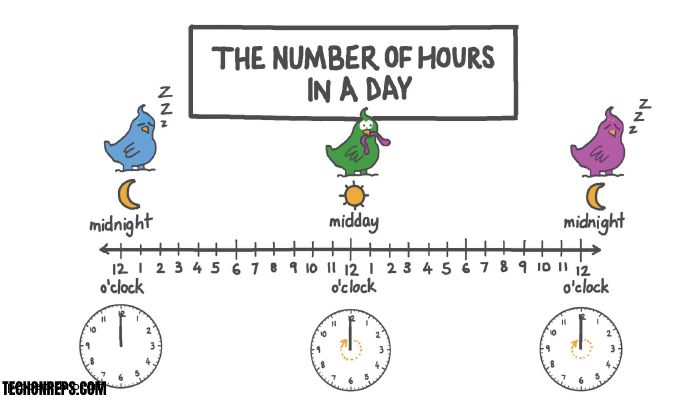How many Hours are in 7 Days: Time Measurement
Time management is a crucial skill that everyone should possess in order to be successful in their personal and professional lives. It involves the ability to prioritize tasks, allocate time effectively, and make the most out of the limited hours in a day. Time management allows individuals to accomplish their goals, reduce stress, and maintain a healthy work-life balance. In this article, we will explore the concept of time measurement, the importance of understanding the basics of a week, the origin of the seven-day week, and how to manage time effectively with a seven-day week.

Understanding the Concept of Time Measurement
Time measurement is the process of quantifying the duration of events or intervals. It allows us to understand and organize our daily lives, ensuring that we can allocate time for various activities such as work, leisure, and personal commitments. Without time measurement, it would be difficult to plan and manage our time effectively.
In our daily lives, time measurement is essential for various reasons. It helps us meet deadlines, schedule appointments, and manage our daily routines. For example, knowing how long it takes to commute to work allows us to plan our mornings accordingly. Time measurement also helps us track progress and evaluate performance. By setting specific time frames for tasks, we can assess our efficiency and make improvements if necessary.
Understanding the Basics of a Week
A week is a unit of time consisting of seven days. It is a fundamental concept in time measurement and is widely used in various cultures around the world. The seven-day week has become deeply ingrained in our society and is used as the basis for organizing work schedules, school calendars, and social events.
The importance of a week lies in its ability to provide structure and consistency in our lives. It allows us to divide time into manageable units and plan our activities accordingly. The concept of a week also provides a sense of rhythm and routine, which can be comforting and help reduce stress. Additionally, the seven-day week allows for a balance between work and rest, as it includes both weekdays for work and weekends for leisure.
The Origin of the Seven-Day Week
The origin of the seven-day week is a topic of much debate and speculation among historians and scholars. While the exact origin is unknown, there are several theories that attempt to explain its development.
One theory suggests that the seven-day week is based on the celestial bodies. The ancient Babylonians, who were skilled astronomers, believed that there were seven celestial bodies that influenced human life: the Sun, the Moon, Mars, Mercury, Jupiter, Venus, and Saturn. Each day of the week was associated with one of these celestial bodies, giving rise to the seven-day week.
Another theory proposes that the seven-day week is rooted in religious beliefs. Many ancient cultures worshipped gods associated with the Sun, the Moon, and the five known planets at the time. These gods were believed to have control over different aspects of life, and dedicating a day to each deity resulted in a seven-day cycle.
Regardless of its origin, the seven-day week has persisted throughout history and is now widely accepted and used in most cultures around the world.
How Many Hours are in a Day?
An hour is a unit of time equal to 60 minutes or 3,600 seconds. It is a standard unit of measurement used globally to quantify time. The concept of an hour has been used for centuries and is based on the Earth’s rotation on its axis.
To calculate the number of hours in a day, we need to consider that a day consists of 24 hours. This is because it takes approximately 24 hours for the Earth to complete one full rotation on its axis. This rotation determines the length of a day and night cycle.
Calculating the Total Hours in a Week
To calculate the total number of hours in a week, we need to multiply the number of hours in a day by the number of days in a week. As mentioned earlier, there are 24 hours in a day. And since a week consists of seven days, the total number of hours in a week is 24 multiplied by 7, which equals 168 hours.
Knowing the total hours in a week is important for effective time management. It allows individuals to allocate their time wisely and ensure that they have enough hours to complete their tasks and responsibilities. By understanding the total hours in a week, individuals can plan their schedules, set realistic goals, and make the most out of their time.
The Significance of Knowing How Many Hours are in a Week
Understanding the total number of hours in a week is crucial for effective time management. It allows individuals to prioritize their tasks, allocate time for different activities, and ensure that they have enough hours to accomplish their goals.
Time management is essential for personal and professional success. It helps individuals stay organized, meet deadlines, and reduce stress. By knowing how many hours are in a week, individuals can plan their schedules more effectively and make better use of their time.
Knowing the total hours in a week also helps individuals set realistic goals and manage their expectations. It allows them to assess the feasibility of their plans and make adjustments if necessary. By understanding the limitations of time, individuals can avoid overcommitting themselves and maintain a healthy work-life balance.
How to Manage Your Time Effectively with a Seven-Day Week
Managing time effectively with a seven-day week requires careful planning and prioritization. Here are some tips on how to manage your time effectively:
- Set clear goals: Start by setting clear and specific goals for yourself. This will help you prioritize your tasks and allocate your time accordingly.
- Create a schedule: Develop a schedule or a to-do list that outlines your tasks and activities for each day of the week. This will help you stay organized and ensure that you are making progress towards your goals.
- Prioritize tasks: Identify the most important and urgent tasks and prioritize them accordingly. This will help you focus on what matters most and avoid wasting time on less important activities.
- Avoid multitasking: While multitasking may seem like a time-saving strategy, it often leads to decreased productivity and increased stress. Instead, focus on one task at a time and give it your full attention.
- Take breaks: It is important to take regular breaks to rest and recharge. This will help you maintain focus and productivity throughout the day.
- Delegate tasks: If possible, delegate tasks to others to lighten your workload. This will free up your time to focus on more important tasks.
- Learn to say no: It is important to learn to say no to tasks or activities that do not align with your goals or priorities. This will help you avoid overcommitting yourself and ensure that you have enough time for what truly matters.
The Impact of Different Cultures on Time Measurement
Different cultures have different time measurement systems, which can have a significant impact on how individuals perceive and manage time. For example, some cultures may prioritize punctuality and view time as a limited resource that should not be wasted, while others may have a more relaxed attitude towards time.
Understanding cultural differences in time measurement is important for effective communication and collaboration. It helps individuals navigate cultural norms and expectations, ensuring that they can work effectively with people from different backgrounds.
The Evolution of Time Measurement over the Centuries
Time measurement has evolved significantly over the centuries. In ancient times, various civilizations used different methods to measure time, such as sundials, water clocks, and hourglasses. These early timekeeping devices were based on natural phenomena such as the movement of the Sun, the flow of water, or the falling of sand.
With the advancement of technology, more accurate and precise timekeeping methods were developed. The invention of mechanical clocks in the 14th century marked a significant milestone in time measurement. These clocks used gears and weights to measure time and were much more accurate than their predecessors.
In the 20th century, the development of electronic clocks and atomic clocks revolutionized time measurement. Electronic clocks use electrical oscillations to measure time, while atomic clocks use the vibrations of atoms to measure time with extreme precision.
Today, time measurement is highly accurate and standardized. The International System of Units (SI) defines the second as the base unit of time, and atomic clocks are used as the primary standard for measuring time.
Conclusion and Final Thoughts on the Importance of Time Management
In conclusion, time management is a crucial skill that everyone should possess in order to be successful in their personal and professional lives. It involves the ability to prioritize tasks, allocate time effectively, and make the most out of the limited hours in a day.
Understanding the concept of time measurement and the basics of a week is essential for effective time management. Knowing how many hours are in a day and a week allows individuals to plan their schedules, set realistic goals, and make better use of their time.
Time management is important for personal and professional success. It helps individuals stay organized, meet deadlines, and reduce stress. By managing their time effectively, individuals can achieve their goals, maintain a healthy work-life balance, and lead fulfilling lives.



